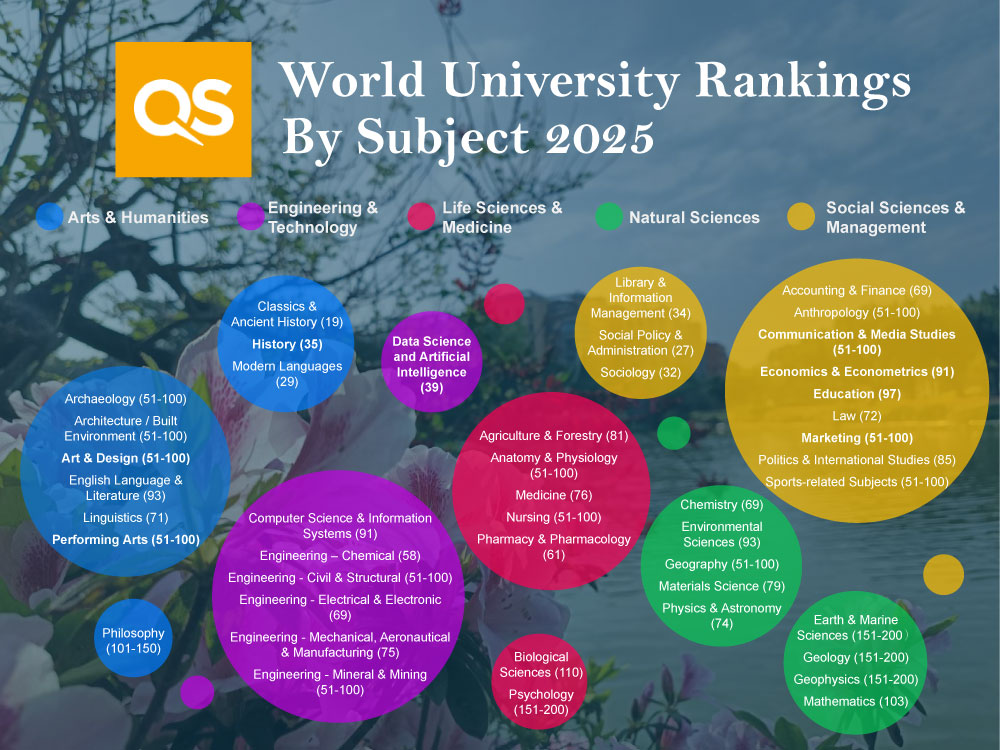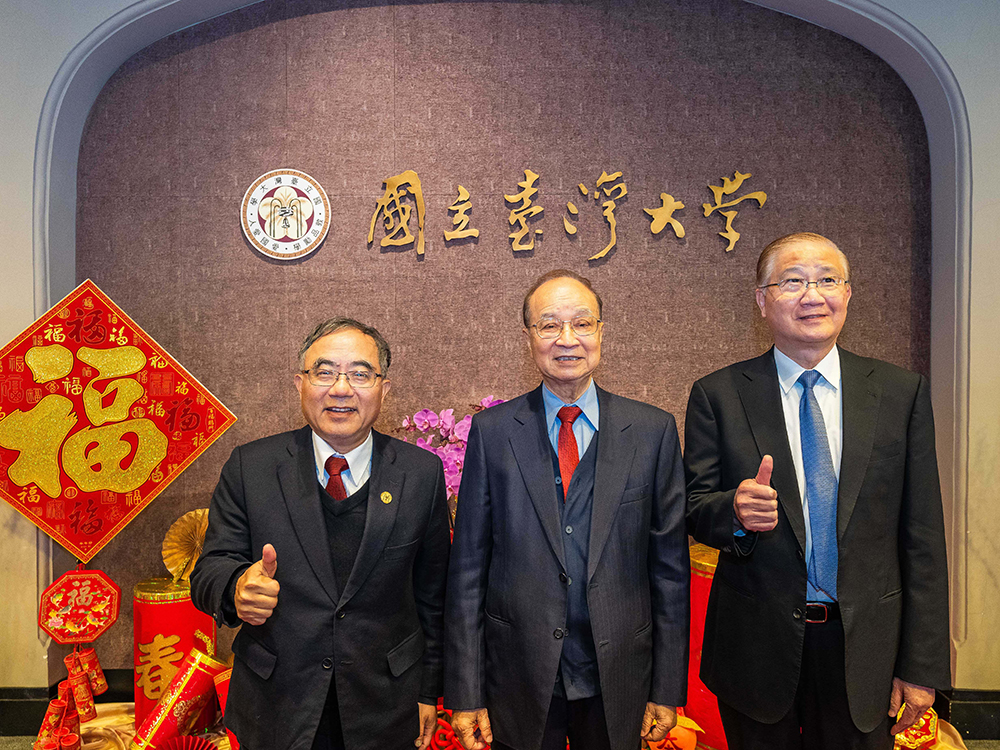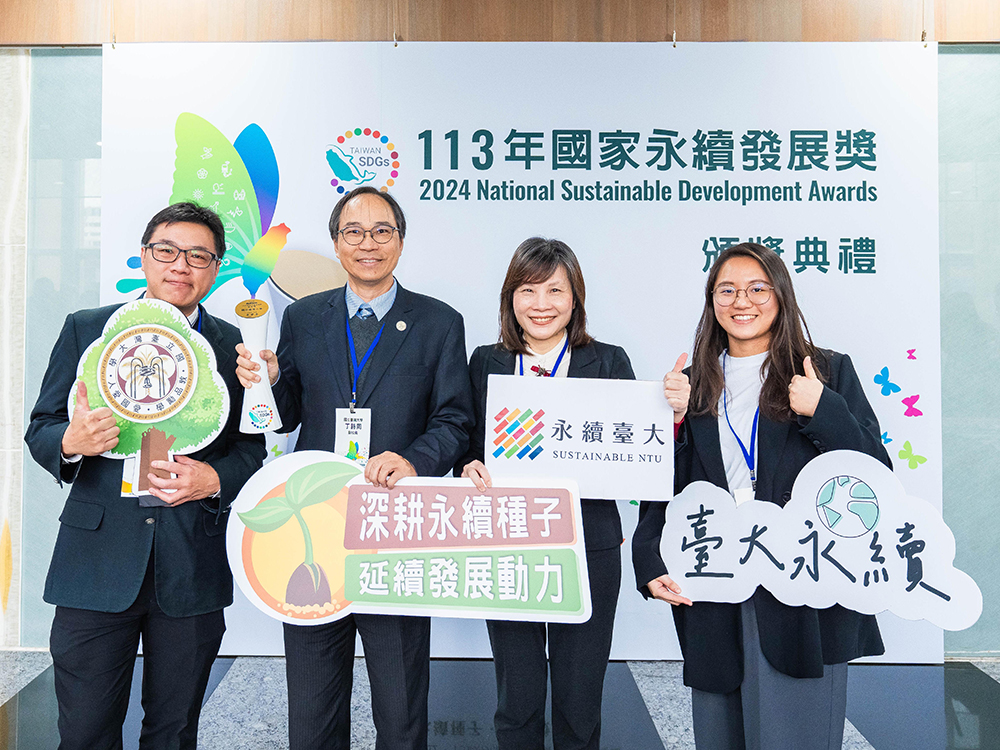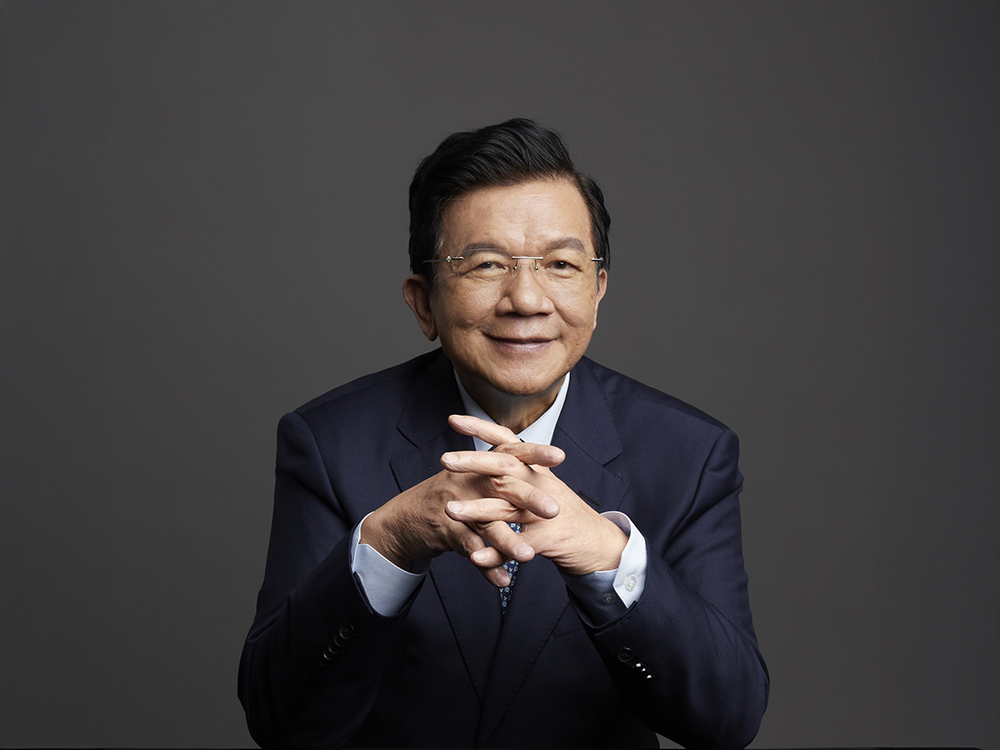
NTU ranks Top 50 in 7 subjects in 2025 QS Subject Rankings
瀏覽器版本過舊,或未開啟 javascript
請更新瀏覽器或啟用 javascript
Spotlights
From right to left: MODA Deputy Minister Herming Chiueh, NTU President Wen-Chang Chen, New Jersey Chief AI Strategist Prof. Beth Noveck, and Conference Chair Prof. Helen K. Liu.
Chief editors of Government Information Quarterly were invited to reflect on digital governments and the journal’s academic contribution for its 50-year anniversary.
Opening remark by NTU President Wen-Chang Chen, encouraging digital policies and how it can respond to the uprising trend of AI.
Guests posting for a group photo in front of the National Palace Museum.
Guests taking a tour of an immersive digital exhibition at the National Palace Museum.
For the DGS 25th Annual Conference, 10 DGS Presidents were invited to give talks and go through the 25-year history of government digitization and international outreach.
“Taipei Night” Banquet and Award Ceremony kicked off by Taipei City Mayor Wan-An Chiang, who shared Taipei City’s experience in implementing intelligent city and presented the award certificates.
International guests visit the Taipei Urban Intelligence Center to learn about various smart initiatives implemented in Taipei City.
NTU successfully hosted the 25th Annual International Conference on Digital Government Research (dg.o 2024) from June 11 to 14, 2024. The university secured the hosting rights for the conference three years ago. This year's conference attracted 160 international participants from 34 countries and regions, including Australia, Brazil, Canada, Mainland China, Denmark, Estonia, France, Germany, Greece, Hong Kong, India, Italy, Japan, Korea, Luxembourg, Mexico, the Netherlands, New Zealand, Peru, Poland, Portugal, Romania, Russia, Singapore, South Africa, Spain, Sweden, Switzerland, Taiwan, the UAE, the UK, the USA, and West Africa. This diverse participation highlighted the global rise of the digital government research community and the collaborative spirit in discussing digital policies.
In his opening speech, NTU President Wen-Chang Chen urged participants to, through this academic platform, explore digital policies, especially in response to the uprising trend of AI. Deputy Minister of the Ministry of Digital Affairs (MODA) Herming Chiueh, on the other hand, shared the Ministry’s effort since its establishment to promote digitization and adoption of AI by governmental institutions.
The first keynote speaker was Prof. Beth Noveck, the inaugural and first Chief AI Strategist of New Jersey State, former US Deputy Chief Technology Officer, and Director of the White House Open Government Initiative. Her talk, titled "Democracy, Peace, and Prosperity in the Age of AI," explored how institutions adopting IT can enhance public participation, improve decision-making, and optimize information processing, stressing the importance of applying AI in a wide range of policies. Another keynote speaker was the Mayor of Taoyuan City, Dr. Simon San-Cheng Chang. He introduced "Smart Taoyuan," highlighting AI adoption trends in key public sector areas, such as transportation and urban planning. He also highlighted the effort involved in making AI initiatives meet human needs, be empirically sound, and legally compatible.
This year’s conference was themed "Internet of Beings: Transforming Public Governance." During the Welcome Reception at the National Palace Museum (NPM), NPM Deputy Director Pei-Chin Yu shared the Museum’s experience in building its digital archive, hosting immersive exhibitions, and planning of its centennial celebration. Following that, during the “Taipei Night” Award Ceremony, Taipei City Mayor Wan-An Chiang shared the city’s numerous smart initiatives. The guests were also invited to visit the Taipei Urban Intelligence Center to experience those undertakings firsthand.
The dg.o 2024 program featured a rich array of keynote speeches, panel discussions, research presentations, doctoral colloquium sessions, posters, system demonstrations, workshops, and tutorials. A total of 23 areas were accepted, with 299 submissions received from 421 authors from 36 countries. Each submission underwent a rigorous peer-review process involving 294 Program Committee members who provided over 750 reviews. The final selection included 164 research papers, seven panels, one workshop, and 16 posters, reflecting a 54% acceptance rate.

NTU ranks Top 50 in 7 subjects in 2025 QS Subject Rankings

New articles by NTU Hospital uncover the tie between metabolic abnormalities and the risk of mortality and cancer

Embracing the Year of Snake: Lunar New Year Gathering

NTU wins the 2024 “National Sustainable Development Awards” for exerting influence in higher education

Prof. Chih-Kung Lee of NTU’s Institute of Applied Mechanics elected NAI Fellow
Current Spotlights